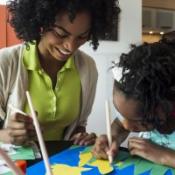 When people think about attention-deficit hyperactivity (ADHD), social difficulties are not typically among the first things that come to mind. However, many children, teens, and adults with ADHD often find themselves struggling socially in a variety of ways.
When people think about attention-deficit hyperactivity (ADHD), social difficulties are not typically among the first things that come to mind. However, many children, teens, and adults with ADHD often find themselves struggling socially in a variety of ways.
People who have ADHD commonly struggle with the following social issues:
- Difficulty taking initiative to make plans
- Not taking steps to maintain contact with friends they don’t otherwise see regularly
- Forgetfulness or canceling plans last-minute (and thus being perceived as “flaky”)
- Being perceived as too talkative (and thus off-putting)
- Trouble following conversations and contributing in a way that enhances them rather than shifts the focus (especially in group situations)
- Difficulty organizing ideas logically and concisely when talking (i.e., taking 5 minutes to tell a story that could be told in 30 seconds)
- Missing social cues
If you have ADHD and identify with the struggles above, here are some ideas and tools you can use to help improve your social functioning:
- Strive to make plans with friends while still with them (i.e., after a movie, look at the calendar and schedule plans for the following week). This may make it easier to sustain seeing friends frequently.
- Schedule calendar events at preset intervals to remind you to call friends who live far away.
- Don’t commit to plans if unsure you will be free.
- If you have to cancel plans, give as much notice as possible and explain why. Offer to reschedule right away.
- Practice explaining things or telling stories concisely on your own. Go through what you want to say initially. Then tell it again and try to cut down the amount of time it takes. Next, try to summarize what you want to convey in a few sentences. The more you practice this, the easier it may become.
- When telling a story, think about the punchline or end point first. Try working backward.
- Practice following multiple people talking in a conversation. For example, watch a television show with scenes where multiple people are talking. Watch it first without sound, then watch with only sound. Finally, watch again with sound and picture. This may help improve your ability to use your different senses in observing social interactions. Write out key points each person is saying and draw a diagram or other visual representation, if needed.
- In social situations, always look at the person speaking; watch their body language and facial expressions. If you’re more of a visual person, imagine a line like a spiderweb being drawn back and forth from person to person as they speak. Then imagine a few keywords being displayed above them. Creating visual representations may help you follow conversations.
- If you often forget key things discussed, write them down, perhaps in your phone after each social interaction. Then you can refer to them before seeing the person again. For example, if your friend is dating someone or just broke up, make a note about it so you can refer to it for next time.
I hope these suggestions are helpful.

The preceding article was solely written by the author named above. Any views and opinions expressed are not necessarily shared by GoodTherapy.org. Questions or concerns about the preceding article can be directed to the author or posted as a comment below.

 How to Use Your Own ADHD to Better Manage Your Child’s
How to Use Your Own ADHD to Better Manage Your Child’s Mental Health Matters: 8 Stigmatizing Phrases to Stop Using
Mental Health Matters: 8 Stigmatizing Phrases to Stop Using Is Art Therapy for ADHD the Right Choice for Your Child?
Is Art Therapy for ADHD the Right Choice for Your Child?

Please fill out all required fields to submit your message.
Invalid Email Address.
Please confirm that you are human.
Leave a Comment
By commenting you acknowledge acceptance of GoodTherapy.org's Terms and Conditions of Use.